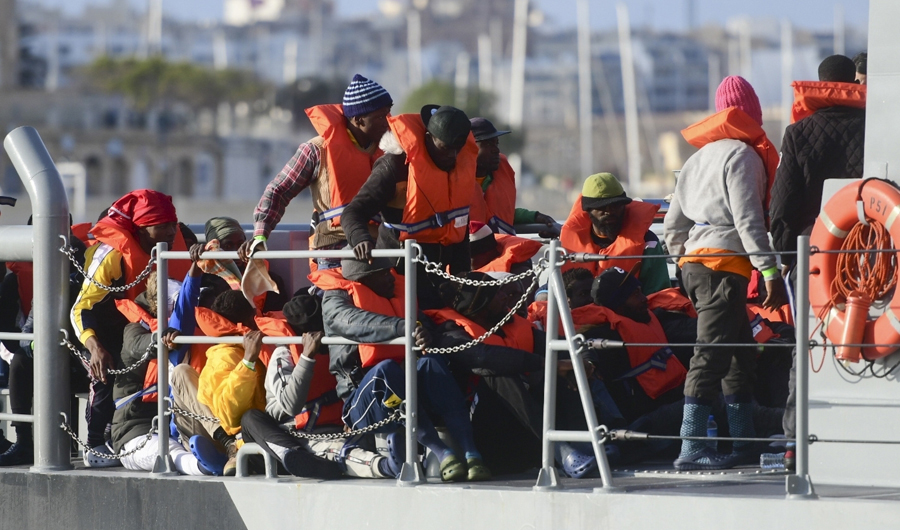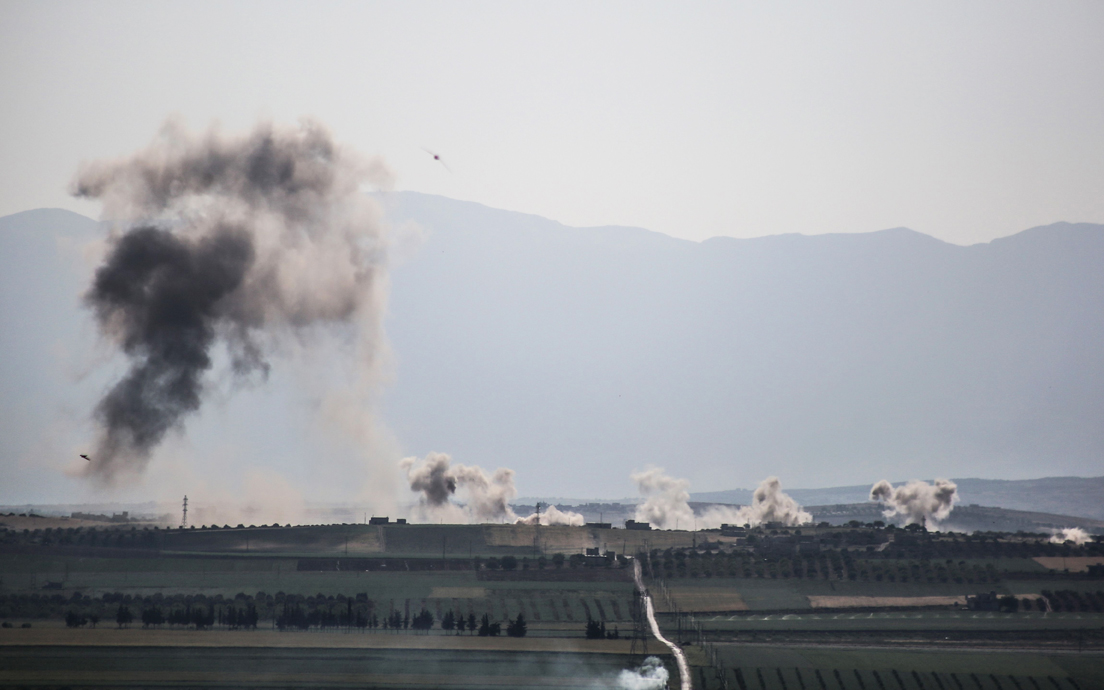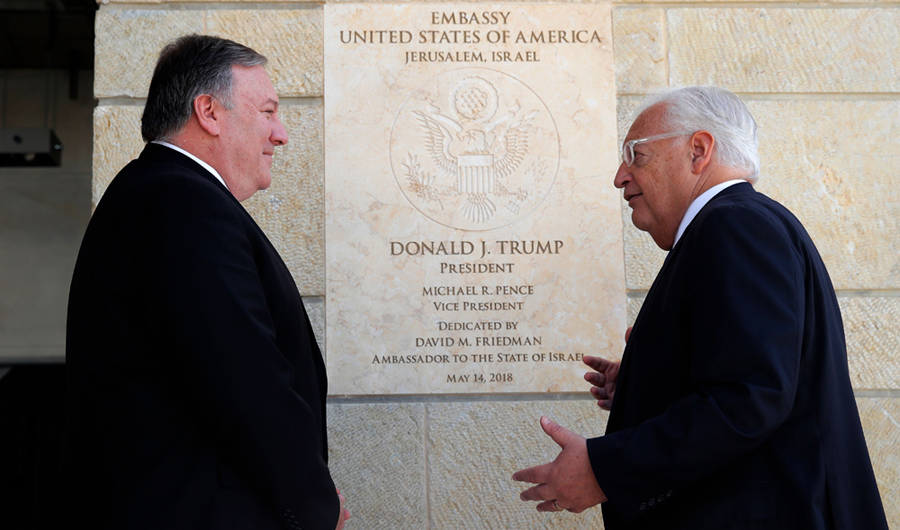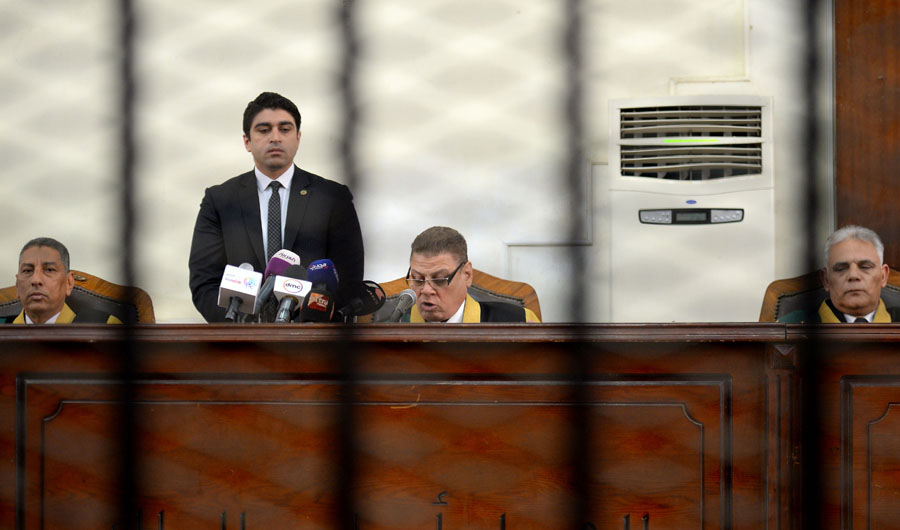JERUSALEM: The US moved its Israel Embassy to Jerusalem nearly a year ago in the culmination of a diplomatic rupture that coincided with a bloodbath on the Gaza border. As President Donald Trump’s administration prepares to present its long-promised plan to resolve the Israeli-Palestinian conflict, what has changed?
Ignoring global outcry, the US inaugurated its embassy in Jerusalem with much pomp on May 14, 2018, using the move from Tel Aviv to manifest one of Trump’s most controversial promises — the recognition of the holy city as Israel’s capital.
To Israel, the process was a “historic” recognition of the 3,000-year connection between the Jewish people and Jerusalem.
The Palestinians, who envision East Jerusalem as the capital of their future state, were livid.
The status of Jerusalem has been disputed since the war surrounding Israel’s inception in 1948, when Israeli forces took control of the western sector of the city.
Israel occupied mainly Palestinian East Jerusalem in the 1967 Six-Day War and later annexed it in a move never recognized by the international community.
Other foreign capitals have resolved to maintain embassies in Israel outside of Jerusalem until the city’s status is resolved through negotiations.
Great March of Return
In March 2018, Palestinians in the Gaza Strip launched the “Great March of Return” to claim land in Israel which they fled or were expelled from during the 1948 war.
A seemingly insoluble rift, the Israeli-Palestinian conflict has been absent from any real diplomatic process since 2014.
Trump entered the White House with the promise to be the most pro-Israel president in US history, with his administration increasing its pledges to Israel.
Two days after the US moved its embassy to Jerusalem, Guatemala did the same. Paraguay followed suit, but backtracked after less than four months.
They also rallied against the US embassy move and called on Israel to lift its crippling decade-long blockade of Gaza, which Israel says is a security necessity.
The border fence has since become the scene of weekly clashes, which Israel says are orchestrated by Gaza’s rulers Hamas but which activists argue are led by a peaceful grassroots civilian movement.
At least 62 Palestinians were killed by Israeli fire during border clashes on the day of the embassy’s inauguration.
That day’s clashes also coincided with the annual commemoration of the Nakba, or “catastrophe,” which marks the 1948 displacement of hundreds of thousands Palestinians.
Hamas refuses to accept Israel’s existence and has fought three wars with the Jewish state since 2008.
Israel has continued its blockade of Gaza, along with its occupation of the West Bank and East Jerusalem, and expanded its settlement enterprise.
The unrest on Gaza’s border has since continued alongside rounds of rocket attacks aimed at Israel and retaliatory strikes on the enclave, most recently this month, with each seeming to bring the sides closer to a full-blown confrontation.
Nearly 300 Palestinians and six Israelis have been killed in the violence in and around Gaza since March 2018.
Other countries declared similar intentions to move their embassies, but none have yet followed through.
Israeli Foreign Ministry spokesman Emmanuel Nahshon has nevertheless been optimistic.
He noted “a dynamic never before seen” of visits by foreign leaders and openings of missions — albeit lacking the rank of embassies.
The chaos which threatened to follow the US move has not materialized, Nahshon said, brushing off its effect on diplomacy.
“For years there has been no peace process,” he said.
The Palestinians, on the other hand, are experiencing “the worst period” ever in terms of relations with the US, said Ahmed Majdalani, adviser to President Mahmoud Abbas.
The US initiatives on Jerusalem have had “a major impact,” he said, adding that in the past year the Trump administration moved from “partial intermediary status to defending the Israeli occupation.”
The Palestinian leadership suspended official contact with the US government in December 2017, and has rejected the moves of Trump’s adviser and son-in-law Jared Kushner to craft the “ultimate” peace deal long-flaunted by the US president.
The plan is expected to be unveiled in June, giving Israeli Prime Minister Benjamin Netanyahu time after winning last month’s snap elections to form a new government possibly even further to the right than the current one.
The US administration has consistently said the plan will break with traditional efforts, and this month Kushner indicated it would ditch longstanding mentions of a two-state solution.
The Jerusalem move “probably did what it needed to do in terms of domestic politics or calculations” for the US, said Hugh Lovatt, an analyst at the European Council for Foreign Relations, but it has “negatively impacted their peace plan.”
“It made it more difficult for Gulf states to come out and support it,” he said, “because Jerusalem is one real red line that remains for them in terms of the Palestinian issue.”
The US State Department this month repeated the embassy move was merely a recognition of “the reality that Jerusalem is the capital of Israel.”
The promised peace plan, it said, was “fair, realistic, implementable, and offers a brighter future for all.”




